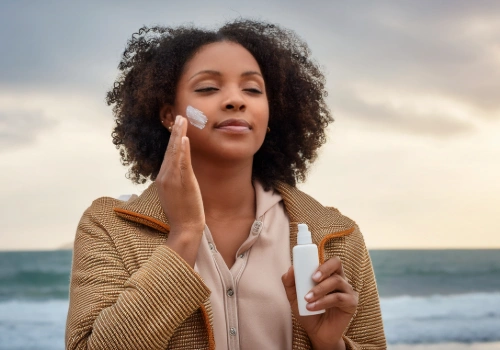
Many people think that if it’s overcast, their skin is safe from the sun. But that’s a dangerous misconception. In fact, up to 80% of UV rays can still penetrate through clouds and cause sunburn.
At Gregory Rhodes Cancer Center, we want to clear up common myths about sun protection and help you stay safe every day—not just on beach trips.
Myth #1: You Can’t Get Sunburned on a Cloudy Day
Truth: You absolutely can.
UV rays, especially UVA rays, are strong enough to pass through clouds and reach your skin. So even if you don’t see the sun, it can still damage your skin and increase your risk of skin cancer over time.
Pro tip: Apply broad-spectrum sunscreen every day—even when it’s cloudy, cold, or windy.
Myth #2: You Only Need Sunscreen at the Beach
Truth: UV exposure happens anywhere—while walking the dog, driving, or sitting near a window.
Even short bursts of daily sun exposure can add up and lead to skin damage, premature aging, or skin cancer.
If you’re outside for more than 15 minutes, you should be protected.
Myth #3: A Hat and Shade Are Enough
Truth: Hats and shade help, but they don’t block all UV rays. Reflected UV rays can bounce off water, sand, concrete, and even snow.
Sunscreen is still essential—even in the shade.
Myth #4: One Application of Sunscreen Lasts All Day
Truth: Sunscreen wears off with sweat, water, and time.
Reapply every 2 hours—or immediately after swimming or sweating.
Look for SPF 30 or higher, and make sure it’s broad-spectrum to protect against both UVA and UVB rays.
How to Protect Your Skin Year-Round
- Use a daily SPF moisturizer—even on cloudy days
- Reapply sunscreen throughout the day
- Wear sunglasses, wide-brimmed hats, and protective clothing
- Avoid peak sun hours (10 a.m.–4 p.m.) when possible
- Get regular skin checks from your provider
Need a Skin Check? Gregory Rhodes Cancer Center Can Help
Skin cancer is one of the most preventable—and treatable—forms of cancer when caught early. If you’ve noticed a changing mole, had frequent sunburns, or just want peace of mind, our team is here to support you.




